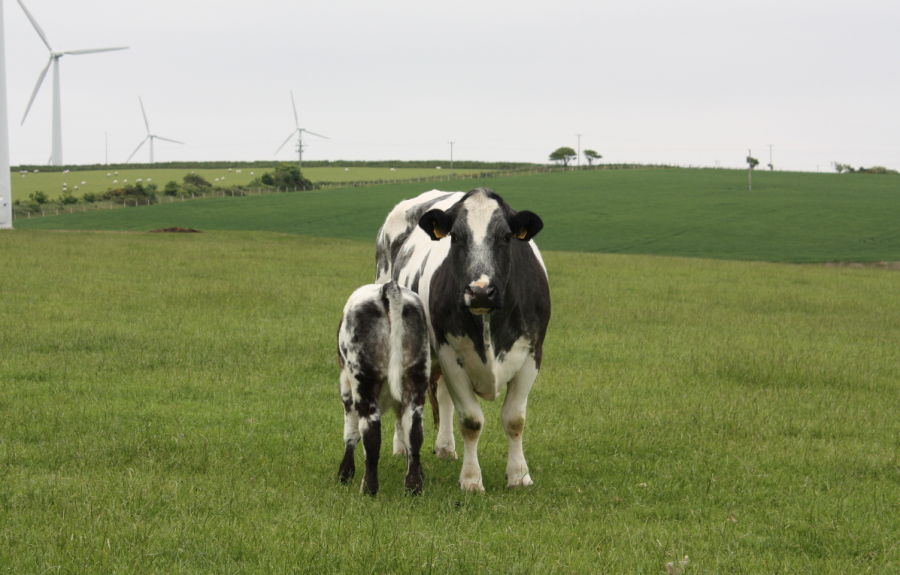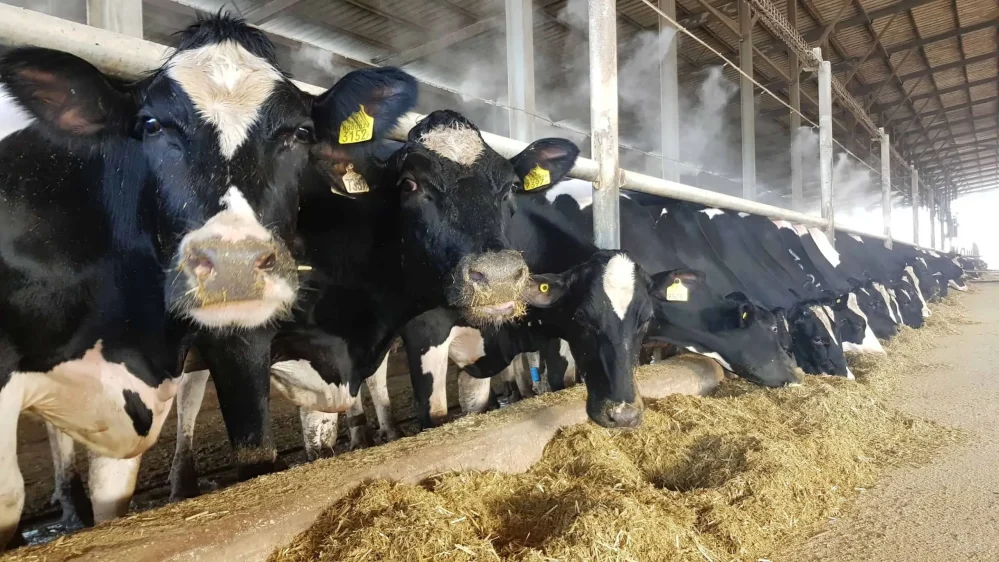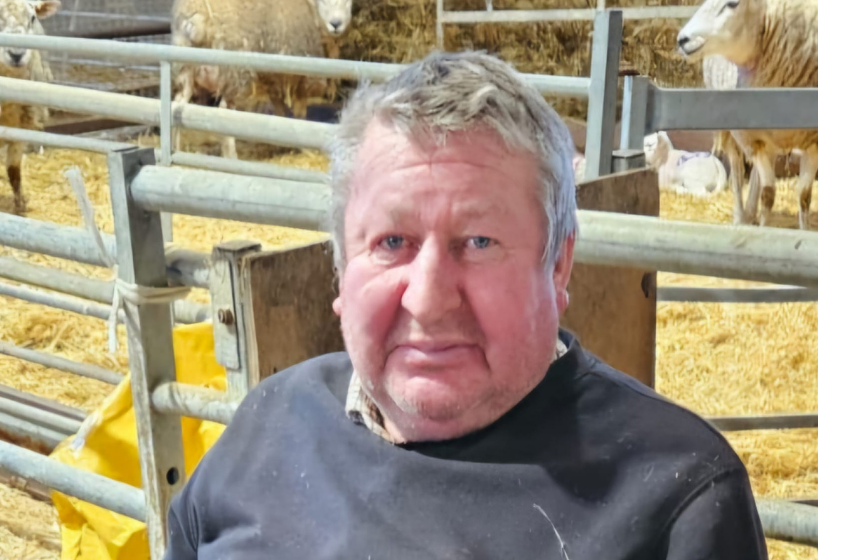Farming
First week of life is key

IMPROVED new-born lamb and calf survival rates not only result in increased income, but also improve welfare, reduce disease, and reduce environmental footprint, according to the results of major GB-wide research.
The Neonatal Survival Project, funded by AHDB, Hybu Cig Cymru (HCC) and Quality Meat Scotland (QMS) in the sheep and beef sector, was established to study the key factors which could drive further improvements in farm efficiency and maximise animal welfare.
Key findings show that the majority of lamb and calf losses occur in the first seven days after birth, with over 98 per cent of lamb and 90 per cent of calf losses occurring in this period.
The findings – and the recommendations for new practices to be adopted on farms – will be discussed at two major webinars. The first will be held on 5 January for vets followed by an event on 21 January for farmers. To register visit ahdb.org.uk/events.
A spokesperson on behalf of the three levy boards said: “A survey and interviews were used to understand motivations and barriers for change. While many farmers were aware of good practice industry advice on new-born survival, it was not consistently followed. This was particularly true with respect to colostrum management and genetic selection.
“Farmers were confident in their abilities to improve survival rates, but tended to underestimate new-born losses on their farm relative to national averages. A cultural stigma around losses limits farmers in discussing their experiences with peers, and in some cases, even with their vet.
“The research also discovered that losses can be highly variable between years; the importance of accurate record keeping also became apparent. While most suckler farmers have access to reliable records, a significant number of sheep farmers do not consistently record their data.”
With global pressures to reduce antibiotic use, this study found that a significant proportion of beef and sheep farmers were able to manage infectious diseases without purchasing critically important antibiotics. Preventive antibiotic use was reduced or withdrawn successfully on some farms, while oral antibiotic treatment at birth made no difference to lamb outcomes in an experimental study within this project.
The study also demonstrated that good long-term protein status in late pregnancy results in reduced lamb losses between scanning and 24 hours old.
Twin born lambs with a low serum antibody (IgG) concentration were more likely to have poorer growth rates. As shown by previous studies, poor energy balance in late pregnancy results in a low lamb IgG. This indicates that lambs born to ewes in negative energy balance are at increased risk of absorbing insufficient colostrum antibodies from the ewe.
The project is now complete, although work is ongoing to enable the implementation of a sustainable youngstock survival plan across Great Britain.
Farming
Farm building scheme near Lawrenny given go-ahead by planners

AN APPLICATION for a storage building at a south Pembrokeshire farm, made by a family member of an officer on Pembrokeshire County Council’s planning service, has been given the go-ahead by the authority’s planning committee.
In an application recommended for approval at the July 23 meeting of the authority’s planning committee, Laura Elliot sought permission for the erection of an agricultural storage building at Tedion Farm, a dairy farm near Lawrenny.
The application had been brought to committee, rather than being delegated to planning officers, due to the family connection.
The farm, near to the Pembrokeshire coast National Park border, comprises 270 milking cows and dairy heifer replacements kept on the farm comprising land over 138 hectares. The farm is mainly down to grass and the cows are paddock grazed in order to utilise grass efficiency.
No objections had been received from local community council Martletwy.
A report for members said: “The application seeks consent for the erection of agricultural storage building. The erection of an agricultural building will be used to store stay, hay and farm machinery.
“The building would be located within the existing farm complex, to the north-east of the site, adjacent to the main farm dwelling. The building will measure 18 metres in length by 13.6 metres in width, with a pitched roof height of 5.71 metres.”
Approval was moved by Cllr Alistair Cameron, seconded by Cllr Brian Hall.
Farming
Fears dairy farm near Kilgetty could increase to 3,000 cattle

PEMBROKESHIRE planners are to visit the site of one of the county’s largest dairy farms after claims were raised a scheme for new calf buildings could lead to animal welfare issues and an increase in the size of the herd to 3,000 cattle.
At the July 23 meeting of the council’s planning committee, an application by Hugh James of Langdon Mill Farms Ltd for a calf building, weaned calf building, and associated yard areas, at Langdon Mill Farm, near Jeffreyston, Kilgetty was recommended for conditional approval.
Local community council Jeffreyston has raised concerns, made by a member of the public, on potential increased noise and odour from the scheme, planners heard.
A supporting statement, through agent Reading Agricultural Consultants, said: “The holding currently has a milking herd of approximately 2,000 cows, which are housed indoors for the majority of the year, with dry cows [cows that are not lactating, prior to calving] and heifers grazed outdoors when weather and soil conditions permit.
“There has been significant investment in buildings and infrastructure at the farm over the last decade in respect of cattle accommodation, slurry storage, milking facilities, Anaerobic Digestion (AD) plant and feed storage. The unit is efficient, achieving yields of more than 10,000 litres/cow/year, with cows being milked three times/day in the 60-point rotary parlour.”
Currently, calves are reared at Langdon Mill Farm for two months before being transported off-site to be reared at a number of third-party farms in the area before being return later; the proposed 61.2m long calf building is required to accommodate young-stock, following separation from the cows, to two-months, with the 164.8m weaned calf building to be used for calves from two months to seven months.
The application says the proposals would “clearly make the enterprise more financially robust by reducing reliance on third party farms”.
However, concerns were raised at the committee meeting by objector Ian Dennis, a former vet of some four decades’ experience, who described Langdon as occupying 3,000 acres of land with 2,000 cattle currently that “are never allowed to graze,” the proposal, he said, would add another 1,000 cattle to the site.
“This is factory farming, an intensive livestock unit, no longer a farm.”
He told planners a “mendacious and incorrect” ammonia emission report submitted by the applicants was “designed to bamboozle,” saying, despite his experience and scientific background, he needed expert support to assess.
He said only average figures were reported, rather than peaks and troughs, adding the “fictitious anaerobic digestion plant” had yet to be built, with planning permission now lapsed.
However, officers told members the applicant’s agent had said works on the digestor had actually started.
On the issue of animal welfare, Mr Dennis said he had “very huge concerns” about the scale of the development, differing from a planning officer report saying the scheme would bring animal welfare benefits.
A suggestion by committee chair Cllr Simon Hancock the application be deferred pending a site visit was unanimously backed by committee members present.
Farming
Family pay tribute to farmer, 65, who died in quadbike accident

A WEST WALES farmer has died after an incident involving a quadbike.
Dyfed-Powys Police have confirmed they attended a report of an incident involving an agricultural quadbike in a field in the Llanilar area of Aberystwyth on July 17.
The force has confirmed that a 65-year-old man died at the scene.
They said that his next of kin have been advised and are being supported by specialist officers. The HM Coroner and Health and Safety Executives have been informed.
His family have paid tribute to him. The family said: “Hugh Tudor was a 65 year old farmer who had farmed at Tynberllan, Llanilar with his wife Ann for over 40 years. He was a devoted father to Sara, Lowri and the late Gwenno.
“Hugh was the son of the late Tom and Sybil Tudor of Glanystwyth and brother to Richard.
“Farming was his life, but he also had a wide range of interests and was actively involved in all aspects of the local community in Llanilar and beyond.
“We would like to thank everybody for their support and kindness during this difficult time.”
-

 Education5 days ago
Education5 days agoMilford Tesco worker achieves Oxford dream and lands top legal job
-

 Crime4 days ago
Crime4 days agoHaverfordwest man admits having nearly 1000 child and animal images
-

 Crime4 days ago
Crime4 days agoYouth set to appear in court over serious sexual offences
-

 Crime4 days ago
Crime4 days agoPolice investigating after man injured during altercation in cemetery
-

 Education4 days ago
Education4 days agoPupils delight in ice cream treat from Pembrokeshire’s number one van
-

 Crime4 days ago
Crime4 days agoTown centre ‘stinking of skunk’ as police strip cannabis farm
-

 Crime3 days ago
Crime3 days agoFag-butt police court summonses spark debate in Pembrokeshire
-

 News6 days ago
News6 days agoProposal to give firefighters a council tax discount to go to Cabinet





























